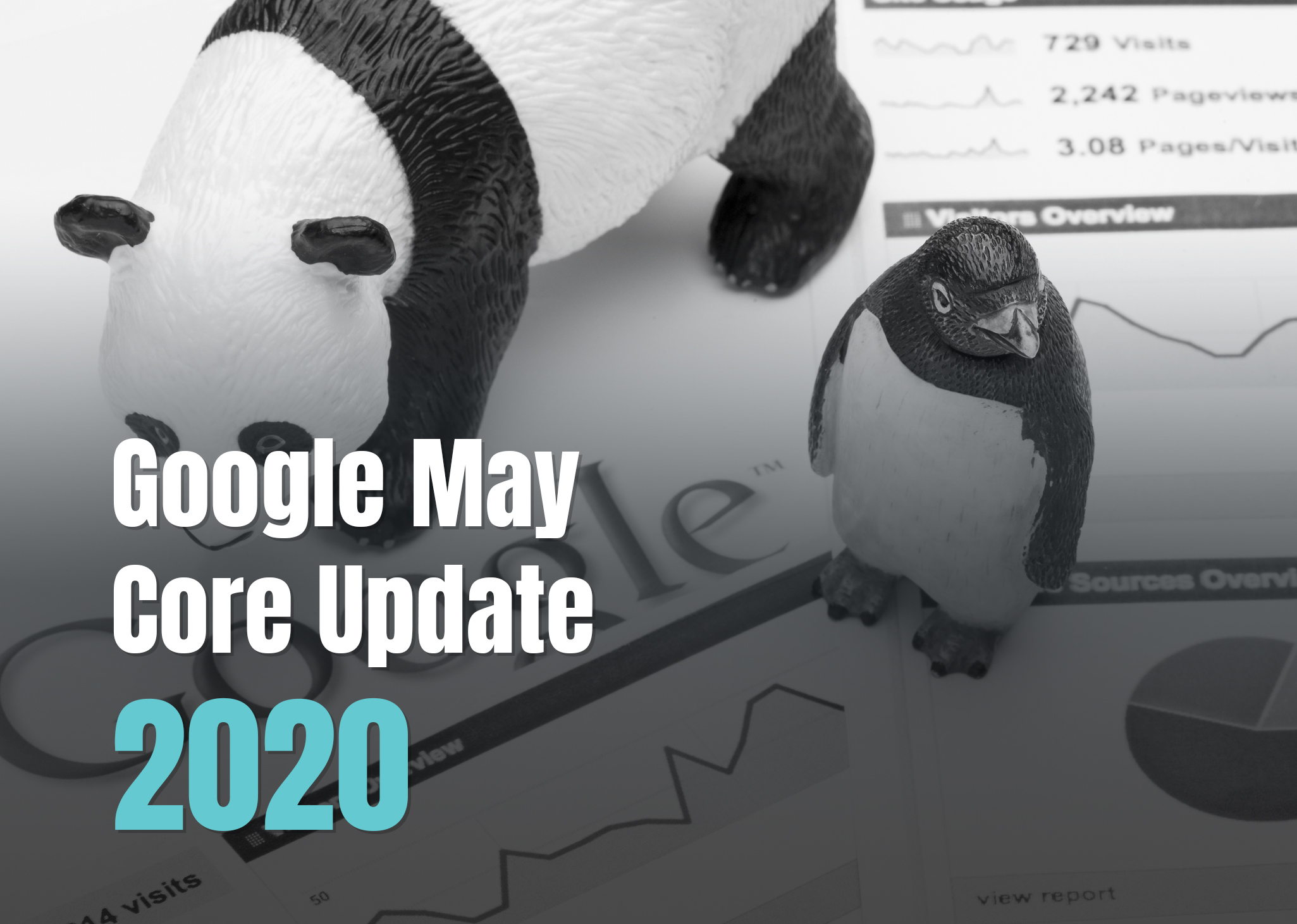Google May Core Update. Major Conclusions
Google May Core Update is over and here are some conclusions that people working in SEO world have come up with. The main idea of this article is to make sure people better understand the current state of SEO framework and become prepared for the future updates both technically and psychologically.

Just like in good old days when Google released search updates and your website PageRank score jumped up from 0 to 5 or vice versa declined, from the beginning of 2020 broad care updates will happen every 2-3 months. At the moment it has become obvious that most vulnerable verticals will remain the same: Health, Finance, Law – the Y.M.Y.L. categories, which means "Your Money or Your Life". In other words, the niches that can directly influence people's life, well-being and freedom. So, our clients working in these niches need to be prepared to the rankings swings. And its not because we don't follow old and new guidelines, this is because the whole environment changes: our websites and the websites of our competitors are being analyzed not just algorithmically, but also by a trained team of Google human assessors. Their job is to verify and validate if your website truly deserves your 1st or 2nd result or there has been a glitch in the algorithm and you occupied the 1st place just by accident.
For Onecore clients this (May) Google Update was favourable enough: positions for almost all projects remained stable and there were some bespoke winners. Magical Credit became an unquestionable leader in "bad credit loans" niche all over Canada.
Other verticals that do not directly influence human well-being such as home-improvement, services, etc. aren't as vulnerable as we do not use any black hat tactics.
At the same time it is extremely important to educate our future clients that constant changes in Google algorithms are inevitable. You never know what might be the decisive element Google will rely on during the next update: mobile friendliness, UX, backlinks, content, social signals, mentions, architecture, bounce rate, time spent on the website, etc.
So what was extremely important during this Google May Core Update?
Content quality & authoritativeness, uniqueness, trust. It is always better when the client either prepares the content or proofreads it and signs it as he or she are subject experts. Unfortunately, this is still a rare case, which nevertheless is not an excuse to avoid including our clients in content development if that makes sense and can really make the difference.
Local trust: we deal mostly with the local clients. It is a must to let Google know that the office is real, there are real people behind the organization, there are mentions of the company in the local papers, chambers of commerce, etc. This also helps with local SEO a lot. For sure, there are client who are resistant to showcase their personal photos and bios but, wait, they want people to trust them and spend money on services they provide and goods the sell? Then the answer is obvious: they need to create an environment of trust. Google is 100% right about that.
User experience: if we want to get/retain good ranking results we should refrain from intrusive interstitials. Unfortunately by over-doing CRO with intrusive pop-ups, pop-unders, etc. we might increase the conversion rate at the expense of organic rankings. UX is not just about interstitials, it is about the overall usability that has direct influence in the time spent on the page, bounce rate, etc.
Technical SEO: internal linking structure, canonicals, content duplication, redirects, on-page tags, etc. What's important: a comprehensive SEO technical audit is required at least once a month to avoid surprises, especially if a client has a tendency to do website changes without letting SEO know. This is a given fact: even a minor change done on the website without putting the search engine optimization in the loop might result in disasters.
Junk pages in index. Blog categories, tags, duplicate pages – all that has of little to no value to the audience needs to be eliminated from website sitemaps. They do not just provide bad user experience but they also are known as huge Google crawl budget consumers. We need to make sure our websites do not contain such junk pages and its is primarily the task of IT and SEO team.
Authoritative backlinks. Unlike many companies who believe only in the content that can magically attract backlinks themselves when it comes to link acquisition we do rely on creative guest blogging. But it is obvious that in order to diversify the backlinks profile and hedge from any negative consequences our team also refers to building authority links. Business social networks are of tremendous importance here but much depends on our clients and their social media-marketing people.
There are other conclusions out of this update like UGC bad influence, forums rankings, but all they aren't applicable to the websites of our clients.
There is one more very important takeout: we will see a new Page Experience Google Update in 2021, which will embrace all the things, discussed and even more. The next article will be solely dedicated to this upcoming update.
Stay tuned!